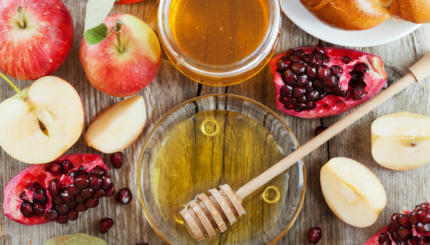Reprinted with permission from The Jewish Religion: A Companion, published by Oxford University Press.
In connection with forbidden work, a distinction is drawn between the Sabbath on the one hand and the major festivals on the other, with a further distinction between the major and the minor festivals.
 On the Sabbath all work is forbidden, but on the major festivals (with the exception of Yom Kippur, which is treated on a par with the Sabbath) work required for the preparation of food is permitted. It is permitted, for instance, to light a fire on the festivals and to cook and bake, but building operations, weaving and sowing, writing, and business activities are forbidden.
On the Sabbath all work is forbidden, but on the major festivals (with the exception of Yom Kippur, which is treated on a par with the Sabbath) work required for the preparation of food is permitted. It is permitted, for instance, to light a fire on the festivals and to cook and bake, but building operations, weaving and sowing, writing, and business activities are forbidden.
On Hanukkah and Purim there is no prohibition at all of work or business dealings. The days between the first and last days of Passover and Tabernacles are known as semi‑festivals and have rules of their own. Even work not required in the preparation of food is permitted on these days but only where loss will be incurred if it is not carried out. In biblical times the day of the new moon, Rosh Chodesh, seems to have been treated as a major festival with regard to the prohibition of work but is now treated as a minor festival like Hanukkah and Purim, although pious women do not work on this day, possibly as a response to the day’s original status.
Hanukkah
Pronounced: KHAH-nuh-kah, also ha-new-KAH, an eight-day festival commemorating the Maccabees’ victory over the Greeks and subsequent rededication of the temple. Falls in the Hebrew month of Kislev, which usually corresponds with December.


